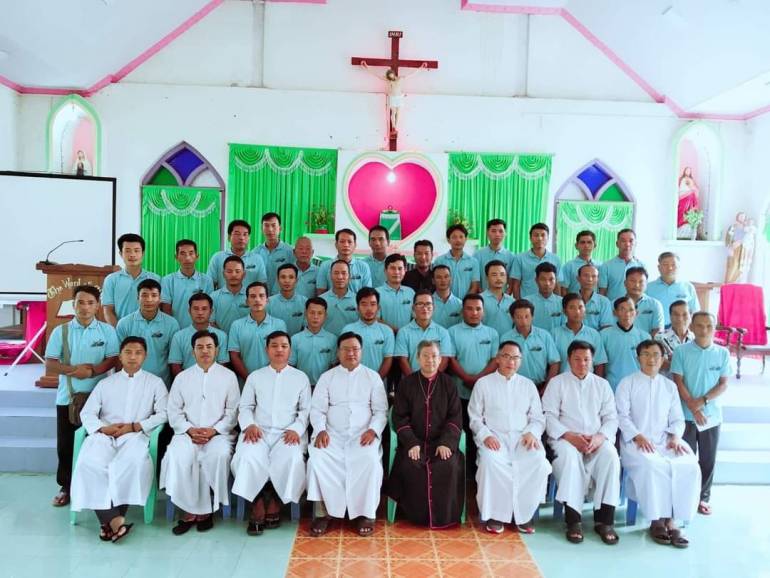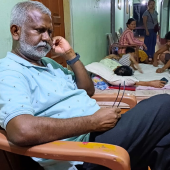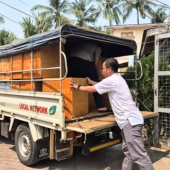Myanmar: Ongoing training for catechists held in Kalay Diocese

The ongoing formation course for the catechists in the Kham Pat zone, Kalay Diocese in Myanmar, was held in Kham Nwae village from October 4 to 8.
As many as 38 catechists out of 41 participated in the program, and parish priests from the KhamPat zone led the course.
Bishop Felix Lian Khen Thang of Kalay Diocese spoke on the mission of catechists and their role in the growth of the church.
Moreover, the host parish priest shared "leadership" dynamics with the youths of the Kham Pat zone for a day.
"There are six priests, 28 nuns, and over 40 catechists working in the field of evangelization. We can only provide 50,000 kyats (US$20) to the catechist as a salary. So, they commit to their family as they have to struggle for their livelihood. The difficulty of transportation is another hindrance. For some catechists, they cannot even provide education for their children," Father Cyril Paupeek told RVA News.
"The catechists are acting like active pastors to lead the sheep in the places where priests are not available, so they need updated courses, and we are conducting them now," he said.
Anyone who would like to become a catechist has to fill out the application form for the Myanmar National Catechist program, which can be received from the parish priest.
Though there is no limitation on educational status, a parish priest chooses who is suited to receive that program.
There are about 5,000 Catholics in the Kham Pat zone, Kalay diocese, and the program of catechists is held every two years.
The town of Kham Pat is situated on the side of the road connecting the Kalay-Tamu-India border, in the diocese of Kalay. - Lucia Thandar Aung and Marcus Nyi Nyi Htun
Radio Veritas Asia (RVA), a media platform of the Catholic Church, aims to share Christ. RVA started in 1969 as a continental Catholic radio station to serve Asian countries in their respective local language, thus earning the tag “the Voice of Asian Christianity.” Responding to the emerging context, RVA embraced media platforms to connect with the global Asian audience via its 21 language websites and various social media platforms.














